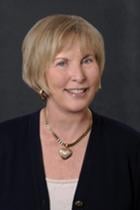DOES ADVICE DO MORE HARM THAN GOOD?
From the moment our children are born, we are faced with decisions, both important and mundane. Do we breastfeed or formula-feed? Cloth or disposable diapers?
Perhaps one of the most common and important concerns parents face after we have a child is HOW TO GET THE BABY TO SLEEP! So we turn to family, friends, experts, bloggers, books and even if we aren’t looking for help, people frequently offer unsolicited advice! And what do these sources tell us? Tons of conflicting advice. Even today’s “latest research” can contradict yesterday’s “latest research.” Here’s an excerpt from a hilarious blog, entitled “I Read All The Baby Sleep Books,” by Ava Neyer.
“You shouldn’t sleep train at all, before a year, before 6 months, or before 4 months, but if you wait too late, your baby will never be able to sleep without you. College-aged children never need to be nursed, rocked, helped to sleep, so don’t worry about any bad habits. Nursing, rocking, singing, swaddling, etc. to sleep are all bad habits and should be stopped immediately… Naps should only be taken in the bed, never in a swing, carseat, stroller, or when worn. Letting them sleep in the carseat or swing will damage their skulls. If your baby has trouble falling asleep in the bed, put them in a swing, carseat, stroller, or wear them.”
Is that a riot or what? Talk about “Analysis Paralysis.” That decision alone can make any of us crazy if we don’t just listen to our instincts. WHAT DID PARENTS DO LONG AGO when they couldn’t read or access this information? Do parents know more than they think but are afraid to trust their inner knowledge?
As Malcolm Gladwell shares in his book, Blink, experts (and I would add, parents) often make better decisions with snap judgments than they do with a great deal of analysis.
So, does advice do more harm than good? I would argue, “no,” as long as we put it in its proper place instead of letting it overwhelm and confuse us.
As a mother and grandmother, I can tell you that decisions affecting our children (and grandchildren) do not go away and over time as children get older, the issues can become even more complicated. Sure, we can always benefit from hearing different people’s perspectives and sharing our own with others (that’s part of the fun of being in a parent peer group), but ultimately, we have to listen to ourselves. The answers, if we listen closely enough, are usually within.
Sincerely,
Peggy
PS. If you take one piece of advice from me this month, let it be to Lock Your Meds; secure your medication, take regular inventory to be sure nothing is missing, safely dispose of unused meds and spread the word to family and friends. There’s a prescription drug abuse epidemic in our country.

